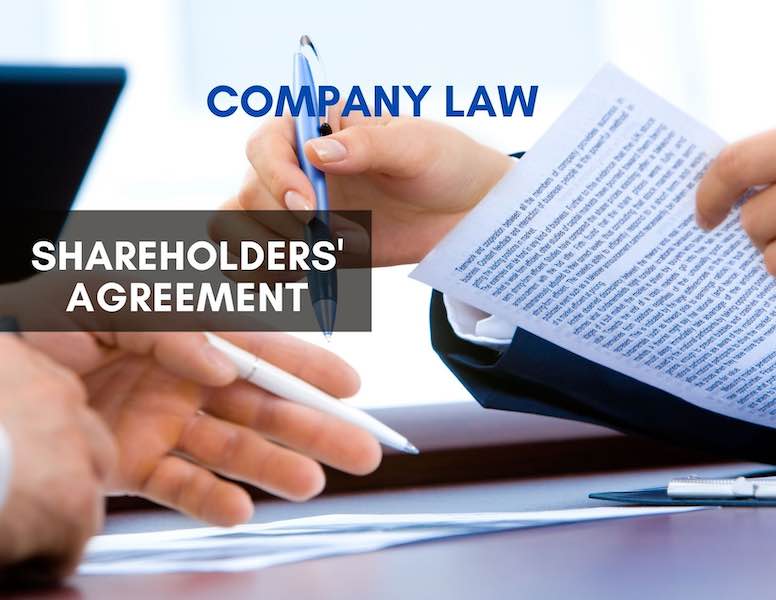Broken Promises: Breaching a Shareholders Agreement in the context of an Oppression Action
by Rachel Ng Li Hui ~ 15 November 2020
A quote, often attributed to acclaimed author Robert Kiyosaki, reads as follows:
“Most shareholders have little if any control over the companies in which they own stock, even if they own a million shares.”
Given the shareholders’ lack of control over their company, shareholders often enter into shareholders’ agreements to regulate their conduct and define their duties and obligations in the running of their company.
However, what happens when a shareholder breaches a shareholders’ agreement? Will that be oppressive to the other shareholders?
Shareholders’ Agreement
The Court in Beh Chun Chuan v Pantai Medical Centre Sdn Bhd & Ors [1999] 3 MLJ 262 relied on Graham Stedman and Janet Jones — Shareholders’ Agreement (2nd Ed, Longman) at 1.42 to say that a shareholders’ agreement is essentially a contract between the members of the company to regulate their conduct and define their duties and obligations inter se in the running of the company.
This characterization of a shareholders’ agreement is echoed in Tung Ah Leek v Perunding DJA Sdn Bhd [2005] 3 MLJ 667 and Piccolo Corporation Sdn Bhd v Sinar Merdu Sdn Bhd [2009] MLJU 1327.
Oppression
The Privy Council case of Re Kong Thai Sawmill (Miri) Sdn Bhd v Ling Beng Sung [1978] 2 MLJ 227 held that oppression happens when there is a visible departure from the standards of fair dealing and a violation of the conditions of fair play in which a shareholder is entitled to expect.
Under S346 of the Companies Act 2016, Courts can, among others, cancel any transaction, order the purchase of shares and/or wind up a company when the affairs of the company are being conducted or the powers of the directors are being exercised in a manner oppressive to one or more of the members or debenture holders including himself or disregard of his or their interests as members, shareholders or debenture holders of the company.
Effect of Breaching a Shareholders’ Agreement
Pre-2013
Before 2013, the Courts are reluctant to classify a breach of a shareholders’ agreement as oppressive. However, the Courts did not rule out the possibility of oppression when such a breach occurs.
In Beh Chun Chuan v Pantai Medical Centre Sdn Bhd & Ors [1999] 3 MLJ 262, the Court held that the breach of a shareholders’ agreement is not oppressive as it is not incorporated into the company’s constitution. The Court explained as follows:
“However, a shareholders’ agreement only creates personal obligations.
…
It follows that in order to ensure that the terms of the shareholders’ agreement shall bind the shareholders inter se under the Companies Act 1965, it would be necessary to incorporate them into the articles of the company.
…
But it seems clear to me that it had at least set the mood and pace if not the law, that any petition for relief under s 181 based on a complaint outside the articles of association is unlikely to succeed.
There is strong rationale in support of this proposition. Much like a club is governed by its constitution, a company is governed by its memorandum and articles of association. A company’s memorandum and articles are therefore the cananic yardstick upon which the legality of its act and those of its officers must be tested and any acts of the company or of its officers which are opposed to its memorandum or articles are likely to be struck down by the court as ultra vires. To rely on extrinsic document to determine the legality of the act of the company or of its directors would be to invite uncertainty in corporate governance.
But that is not to say that a breach of a shareholders’ agreement can never be made the subject of oppression. It can — provided that the act complained of under the agreement falls outside the governance of the articles and cannot be justified under it. ‘Oppression’ in the context of s181(1)(a) is after all an inexact equitable concept.
…
It would not make any legal sense if the legality of the conduct of the director or the company are tested against any extrinsic documents, the effect of which would render absurd the established principle that the company’s governing constitution is always its memorandum and articles of association.”
Likewise, the Court in Piccolo Corporation Sdn Bhd Anor Abdul Samad Bin Ramli v Sinar Merdu Sdn Bhd & Ors [2009] MLJU 1327 alluded as follows:
“It is trite that shareholders’ agreement only creates personal obligations, and to bind the company under the Company Act it must be incorporated in the articles or ratified by the company. [see Welton v Saffery [1875] 9 All ER Rep 567; Russel v Northern Bank Development Corp [1992] 3 All ER 161. That does not mean that a breach of shareholders’ agreement will not give any remedy. Any party who breaches any terms in a shareholders’ agreement is liable for damages and the aggrieved party may also be able to make out a case pursuant to section 181 of Companies Act for oppression. When the application is seeking remedy for oppression the court can grant wide relief which may include to a limited extent the nature of prayers the plaintiff is seeking and/or wind up the company pursuant to section 218(1)(i) on just and equitable ground. It all depends on the facts and the grounds.”
Post-2013: the Jet-Tech case
In Jet-Tech Materials Sdn Bhd v Yushiro Chemical Industry [2013] 2 MLJ 297 (the “Jet-Tech” case), the Federal Court was asked ‘Whether a breach by a majority shareholder of a written shareholder agreement would amount to ‘oppressive conduct’ or be ‘otherwise prejudicial’ to a minority shareholder within the meaning of s 181(1)(a) or (b), thereby entitling a court to grant relief pursuant to s 181(2).’
The Court answered in the negative, and held as follows:
“In this regard we are in agreement with the submission of learned counsel for the respondents that breaches of a shareholders agreement cannot be a basis for bringing a petition under s 181. A complaint under s 181 of the CA must be confined to matters relating to the affairs of the company. Shareholders’ agreement and breach of the same clearly are not matters relating to the affairs of the company. They are private matters enforceable by the parties to the shareholders agreement.”
A Welcome Change?
There is no doubt that the Federal Court in the Jet-Tech case has provided much-needed clarity rejecting breaches of shareholders’ agreements as a ground of oppression on the basis that they are not matters relating to the affairs of the company.
However, it can be argued that shareholders’ agreements are intertwined with the affairs of the company. For instance, a shareholders’ agreement may spell out the business of a company and the composition of its directors. The Singapore Court of Appeal in Ho Yew Kong v Sakae Holdings Ltd [2018] SGCA 33 highlighted this conundrum, and elucidated as follows:
“We respectfully disagree with the court’s conclusion in Jet-Tech. First, we do not accept the underlying premise in Jet-Tech that shareholders’ agreements “are not matters relating to the affairs of [a] company”. One can easily conceive of possible situations where a shareholders’ agreement in fact specifically concerns the affairs of the company in question. The JVA in the present case is an example of just such an agreement as it spells out, among other things, the business of the Company (cl 6), the composition of the Company’s board of directors (cl 7) and the proceedings of directors’ meetings (cl 8
…
Second, it is trite that any understanding between the shareholders of a company, whether contained in a formal agreement or merely in the form of an informal understanding, can and generally will form the backdrop against which the court determines whether there has been commercial unfairness.”
Conclusion
As it stands, Malaysian Courts will not consider a breach of a shareholders’ agreement as a ground of oppression. Be it as it may, I would humbly invite the Courts to reconsider this proposition.
Shareholders’ agreements often form the backdrop of how shareholders behave and, in some cases, how a company should run. In breaching such agreements, one may depart from the standards of fair dealing and consequently act oppressively.
It is suggested that the Courts can consider viewing the contents and obligations arising from shareholders’ agreements before deciding whether a breach of the same amounts to oppression.

